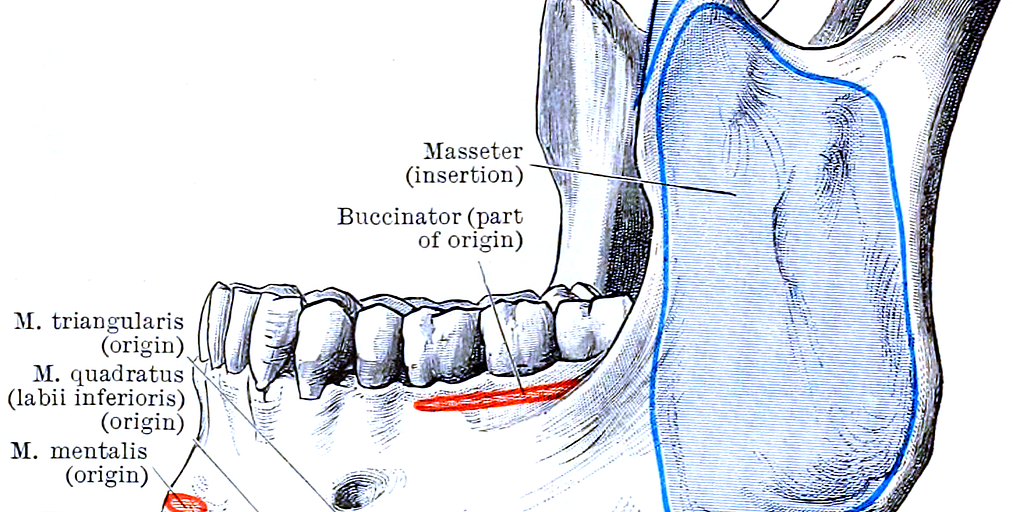TMJ stands for temporomandibular joint, which is the joint that connects your jawbone to your skull. It acts like a sliding hinge, allowing you to open and close your mouth, as well as move your jaw side to side. The joint is located on both sides of your head, just in front of your ears.
Temporomandibular joint disorder (TMD or TMJ disorder) refers to a variety of conditions that can affect the temporomandibular joint and the muscles surrounding it. These conditions can cause pain and dysfunction in the jaw joint and surrounding areas. TMJ disorders are relatively common and can affect people of all ages.
Common symptoms of TMJ disorders include:
-
Jaw Pain: Pain or tenderness in the jaw joint area, particularly when chewing or speaking.
-
Difficulty in Opening or Closing the Mouth: Limited range of motion in the jaw, sometimes accompanied by a clicking or popping sound.
-
Facial Pain: Pain in the face, jaw, or neck.
-
Ear Pain: Some people with TMJ disorders may experience ear pain or a feeling of fullness in the ears.
-
Headaches: TMJ disorders can contribute to tension headaches or migraines.
-
Jaw Clicking or Popping: Some individuals may notice clicking, popping, or grating sounds when they move their jaw.
-
Locking of the Jaw: In some cases, the jaw may temporarily get stuck in an open or closed position.
The exact cause of TMJ disorders can vary and may involve a combination of factors, including jaw injury, arthritis, genetics, teeth grinding (bruxism), and stress. Diagnosis is typically based on a thorough examination of the jaw joint, dental and medical history, and, in some cases, imaging studies.
Treatment for TMJ disorders varies depending on the severity and underlying cause of the symptoms. Conservative treatments may include self-care measures, such as applying heat or cold packs, practicing relaxation techniques, and avoiding excessive jaw movements. In more severe cases, medical or dental interventions, such as medications, physical therapy, or dental splints, may be recommended. Surgery is generally considered a last resort and is only recommended in rare cases when other treatments have not been effective. If you suspect you have a TMJ disorder, it's advisable to seek professional evaluation and guidance from a healthcare provider or a dentist.
How to care for TMJ disorder (aka TMD)?
Temporomandibular joint (TMJ) disorders can cause discomfort and pain in the jaw joint and the muscles that control jaw movement. While mild cases may resolve on their own, more severe or persistent cases may require intervention. Here are some general strategies that may help manage and alleviate TMJ symptoms:
- Rest Your Jaw:
- Avoid excessive jaw movements, such as chewing gum or biting your nails.
- Be mindful of clenching or grinding your teeth, especially during times of stress. Consider using a mouthguard at night to protect your teeth.
- Apply Cold or Heat Packs:
- Apply a cold or heat pack to the affected jaw area. Cold packs can help reduce inflammation, while heat packs can help relax tense muscles. Use a cloth to protect your skin and apply the pack for 15-20 minutes.
- Gentle Jaw Exercises:
- Perform gentle jaw exercises to improve flexibility and reduce tension. Consult with a healthcare professional or physical therapist for specific exercises tailored to your condition.
- Massage and Stretching:
- Gently massage the jaw and neck muscles to relieve tension. Stretching exercises for the jaw and neck may also be beneficial.
- Over-the-Counter Pain Relief:
- Non-prescription pain relievers, such as ibuprofen or acetaminophen, can help alleviate pain and reduce inflammation. Follow the recommended dosage and consult with a healthcare professional if you have concerns.
- Stress Management:
- Practice stress-reducing techniques, such as deep breathing, meditation, or yoga. Stress can contribute to jaw clenching and exacerbate TMJ symptoms.
- Soft Diet:
- Stick to a soft diet, avoiding hard, chewy, or crunchy foods. This can help reduce strain on the jaw joint and muscles.
- Orthodontic Treatment:
- In some cases, orthodontic treatment or the use of a dental splint may be recommended to address bite issues and reduce strain on the TMJ.
- Physical Therapy:
- A physical therapist with expertise in TMJ disorders can provide specific exercises and treatments to improve jaw function and alleviate symptoms.
- Professional Consultation:
- If symptoms persist or worsen, consult with a healthcare professional, such as a dentist or an oral and maxillofacial surgeon. They can assess your condition and recommend appropriate treatment options, which may include medications, injections, or, in rare cases, surgery.
It's essential to seek professional advice for an accurate diagnosis and personalized treatment plan. The approach to TMJ management may vary based on the underlying cause and severity of symptoms. Additionally, lifestyle modifications, such as maintaining good posture and avoiding habits that strain the jaw, can contribute to long-term relief.















